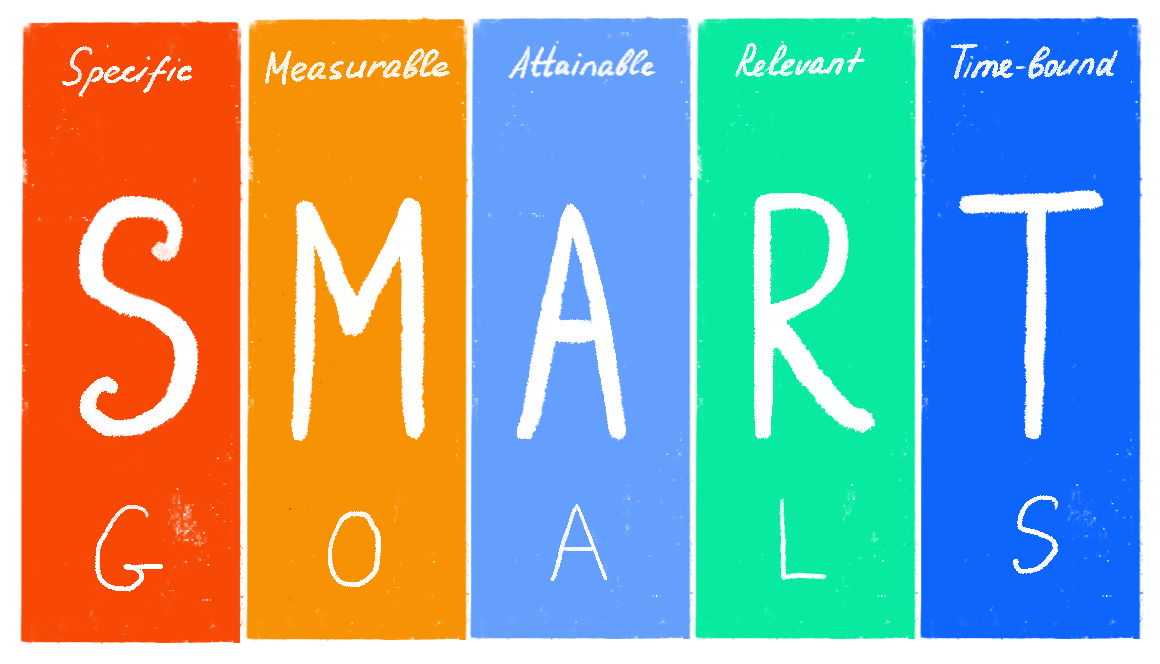Goal Setting for Success: A Guide to SMART Goals in the Year Ahead

By making your goals SMART, you provide clarity, direction, and a structured plan for success. These goals help you stay focused, motivated, and accountable, ensuring that you can track your progress and celebrate your accomplishments throughout the year. So, as you embark on your journey in the new year, remember that SMART goals are the compass that can guide you toward your desired destination of personal and professional growth.
Let’s explore the SMART goal-setting framework and provide guidance on how to set goals that are Specific, Measurable, Achievable, Relevant, and Time-bound.
******** Understanding SMART Goals ********
SMART is an acronym that stands for Specific, Measurable, Achievable, Relevant, and Time-bound. This framework helps you create well-defined, actionable goals that are more likely to be achieved.
Specific:
Your goals should be clear and precise. Avoid vague or ambiguous language. Define exactly what you want to achieve.
* Example: Instead of saying, "I want to get fit," say, "I want to lose 20 pounds and improve my cardiovascular fitness by running 5 miles without stopping."
* Measurable:
Establish metrics or indicators that allow you to track your progress. Measurable goals provide a sense of accomplishment as you see your advancement.
* Example: Instead of saying, "I want to read more books," say, "I want to read 20 books by the end of the year, averaging about 1.5 books per month."
* Achievable:
Ensure your goals are realistic and attainable. While it's good to challenge yourself, setting overly ambitious goals can lead to frustration.
* Example: Instead of saying, "I want to become a professional musician within a year," say, "I want to take music lessons and perform at local events to build my skills and experience."
* Relevant:
Align your goals with your values, interests, and aspirations. Goals that resonate with your deeper motivations are more likely to drive personal growth.
* Example: Instead of saying, "I want to learn a new language," say, "I want to learn Spanish because it will enhance my travel experiences and career opportunities."
* Time-bound:
Set deadlines for your goals to create a sense of urgency. Having a timeline encourages you to take consistent action.
* Example: Instead of saying, "I want to write a novel someday," say, "I want to complete the first draft of my novel by December 31st of this year."
******** Guidelines for Setting SMART Goals ********
Now that we understand the SMART framework, here are some practical guidelines to help you set SMART goals for the year ahead...
Prioritize Your Goals:
Identify the most important areas of your life that you'd like to focus on. It could be personal development, career, health, or relationships.
Start Small: Begin with a few achievable goals rather than overwhelming yourself with a long list. You can always add more as you progress.
Write Them Down: Put your goals in writing. This simple act helps clarify your intentions and serves as a visual reminder.
Break Them Down: If your goal is significant, break it into smaller, manageable steps. This makes it easier to track progress and stay motivated.
Stay Accountable: Share your goals with a trusted friend or family member who can help hold you accountable. Alternatively, consider keeping a journal to monitor your journey.
Adapt and Adjust: Be flexible. Life can be unpredictable, and circumstances may change. Adjust your goals as needed to stay aligned with your evolving priorities.

